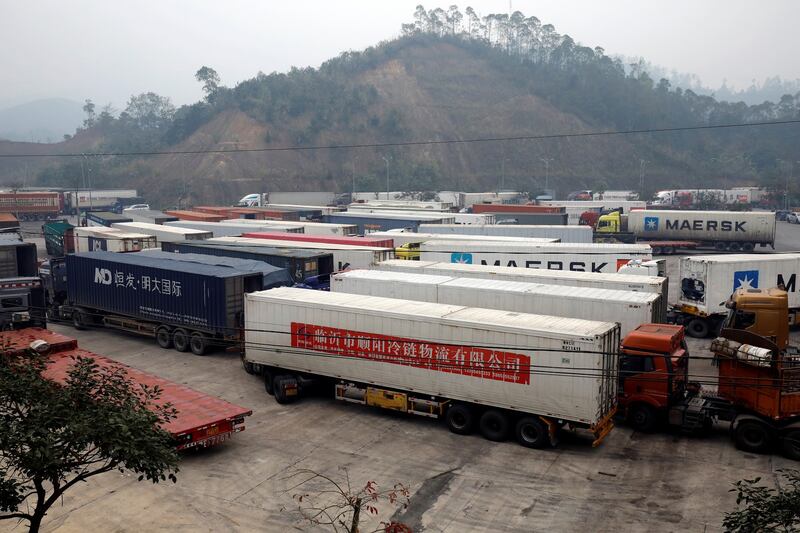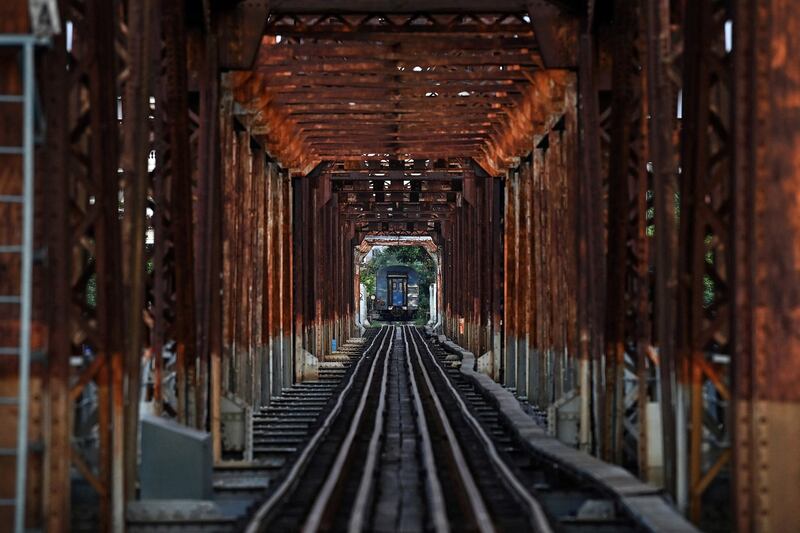Vietnam President Vo Van Thuong’s visit to China this week for the Belt and Road Forum is the latest in a series of high-level exchanges aimed at balancing Hanoi’s relations with Washington and Beijing amid increased competition between the two powers, according to experts.
Thuong arrived with a delegation of Vietnamese government officials on Tuesday amid reports that Chinese President Xi Jinping is planning to travel to Hanoi in the next few weeks.
Last month's two-day trip to Vietnam by U.S. President Joe Biden included an announcement that Washington and Hanoi were upgrading their relationship to a comprehensive strategic partnership, putting Washington's engagement with Hanoi on par with that of Beijing's and Moscow's.
That came amid Beijing's increasingly assertive " nine-dash line" claims to the South China Sea, and as the U.S. seeks to diversify its global supply chains.

“Vietnam continues to pursue a diplomatic policy that balances major powers’ influence,” said Hanh Nguyen, a doctoral candidate at the Australian National University.
“This policy aims to avoid creating an impression that Vietnam is taking sides in the strategic competition between China and the U.S,” she said.
China’s railway technology
Thuong is among representatives from 130 countries at the third Belt and Road Forum for International Cooperation.
China has already mapped out a number of projects if Vietnam were to eventually agree to take part in the Belt and Road Initiative, including railway routes from the northern provinces to Hanoi and the port city of Haiphong, a North-South high-speed railway and a North-South highway.
“Vietnam has a demand for infrastructure development, and China has world-leading railway technology,” Hanoi-based Vietnamese scholar Nguyen Quang A told Radio Free Asia.
“If Vietnam can make use of China’s funds and railway technology to improve Vietnam’s infrastructure, Vietnam should do it as it’s a good thing to do,” he said.

Hanoi journalist Nguyen Pham Muoi told RFA via text message that Vietnam and China’s economies will only grow closer in the long run. Addressing the demand for connecting transportation infrastructure with China is inevitable, he said.
China is already a major investor in Vietnam, and Vietnam’s leadership will continue to play up the close economic ties as it attempts to reassure Beijing over the closer relations with the United States, according to Zachary Abuza, who is a professor at the National War College in Washington and an adjunct at Georgetown University.
Xi and Communist Party of Vietnam General Secretary Nguyen Phu Trong will emphasize their fraternal party-to-party ties, an important channel of influence that Washington doesn’t have, he said.
“The leadership is going to great pains to signal that the upgrade in relations with the United States is not coming at the expense of China or its interests,” he said.
Translated by Anna Vu. Edited by Matt Reed.
